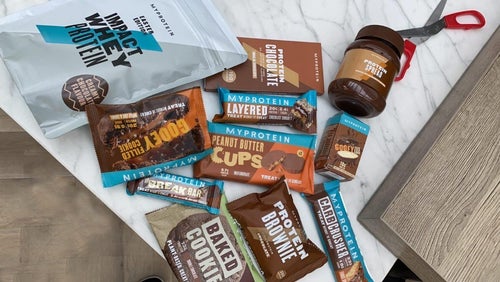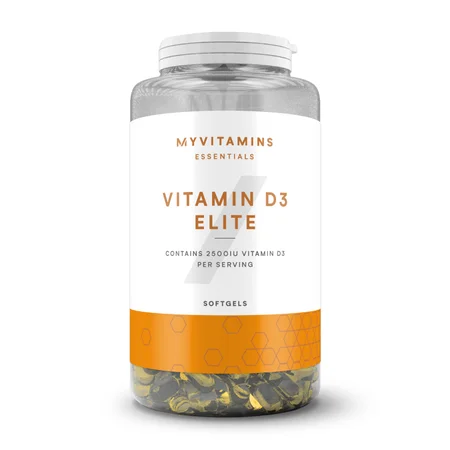
What supplements can support your immune system?
Supporting your immune system can make all the difference when it comes to being able to tackle all of your daily activities — from having a productive day at work, to blasting through a successful session in the gym.
It’s the first and last line of defence against illness and disease, so in general, the stronger your immune system is, the healthier you are as an individual. But your immune system has to cope with a lot of external factors on a regular basis.
It can be worn down by illness, toxins and pollution in the air, unhealthy foods, stress, bacteria, aging, and in some cases, even by overexertion. That’s quite a battering if you aren’t looking after yourself properly.
Keeping yourself healthy from the inside out is an easy way to keep on top of things and stay on track with whatever goals you’re working towards.
That’s why we think that strengthening your immune system is just as important to your training routine as building those biceps.
Here are five simple ways you support your immune system.

1. Fish oil supplements
Plus, they're a convenient and cost-effective alternative if you struggle to get enough oily fish into your diet.
2. Vitamin D
Vitamin D is a fat-soluble vitamin, commonly known as the 'sunshine vitamin’ because of the human body’s ability to naturally synthesise it when exposed to UV rays from the sun.
Studies have suggested that higher than average amounts of blood vitamin D can substantially reduce a person’s likelihood of suffering from illness and/or disease.1
Vitamin D not only helps support the immune system — it also supports calcium absorption, which in turn can promote bone health and strength.2
3. Probiotics
Probiotics are sometimes referred to as ‘friendly bacteria’ that inhabit the human digestive tract, primarily the gut. Within your digestive tract, there are literally millions upon millions of different bacteria; some good and some bad.
Good bacteria, such as
As much as 70% of the immune system is actually controlled via what goes on inside the gut, so making sure your gut is healthy is an important place to start.
4. Vitamin C
Vitamin C is arguably the most impressive vitamin when it comes to supporting the immune system, which is perhaps why doctors recommend increasing vitamin C consumption during cold and flu seasons.
Vitamin C is well-known as a supplement for strengthening the immune system, due to its antioxidant properties that help to rid the body of free radicals. Additionally, it can bind to toxic materials from within, preventing them from interfering with natural internal processes carried out by the body.4
It’s also a great one to make part of your training routine, as it helps to support your natural defences after a tough workout.5
5. Multivitamins
There’s a reason they’re called essential vitamins — every single one comes with a whole host of key health benefits that help you to feel your best. Taking a multivitamin tablet each day is a sweet and simple way to make sure you’re topped up on everything you need.
Our premium multivitamin complex THE Multi™ contains a complete A-Z blend of essential vitamins and minerals, ideal for supporting general wellbeing. With higher bioavailability than standard multivitamin formulas, these capsules are designed to give you the optimal delivery of the nutrients you need.
They contain a powerful blend of the B vitamins, vitamin D, and zinc, which all play a role in supporting the immune system — as well as vitamin C which especially helps during and after intense exercise.5,6
Plus, they contain iron and magnesium, which can help you to fight fatigue.7
Found this useful? Check these out next:

12 Healthy Snack Alternatives To Satisfy Every Craving
Can’t kick those chocolate cravings? We got you....

Guide To Vitamin D | Benefits, Sources & Deficiency Symptoms
Not seen the sun in months? You should read this....

- Bartley, J. (2010). Vitamin D: emerging roles in infection and immunity. Expert Review of Anti-infective Therapy, 8(12), 1359-1369.
- Sunyecz, J. A. (2008). The use of calcium and vitamin D in the management of osteoporosis. Therapeutics and clinical risk management, 4(4), 827.
- Perdigon, G., De Macias, M. E., Alvarez, S., Oliver, G., & de Ruiz Holgado, A. P. (1988). Systemic augmentation of the immune response in mice by feeding fermented milks with Lactobacillus casei and Lactobacillus acidophilus. Immunology, 63(1), 17.
- Carr, A. C., & Maggini, S. (2017). Vitamin C and immune function. Nutrients, 9(11), 1211.
- Vitamin C contributes to the maintenance of normal function of immune system during and after intense physical exercise.
- Vitamin B6, vitamin B12, biotin, vitamin D, and zinc all contributes to the normal function of the immune system.
- Iron and magnesium contribute to the reduction of tiredness and fatigue.






